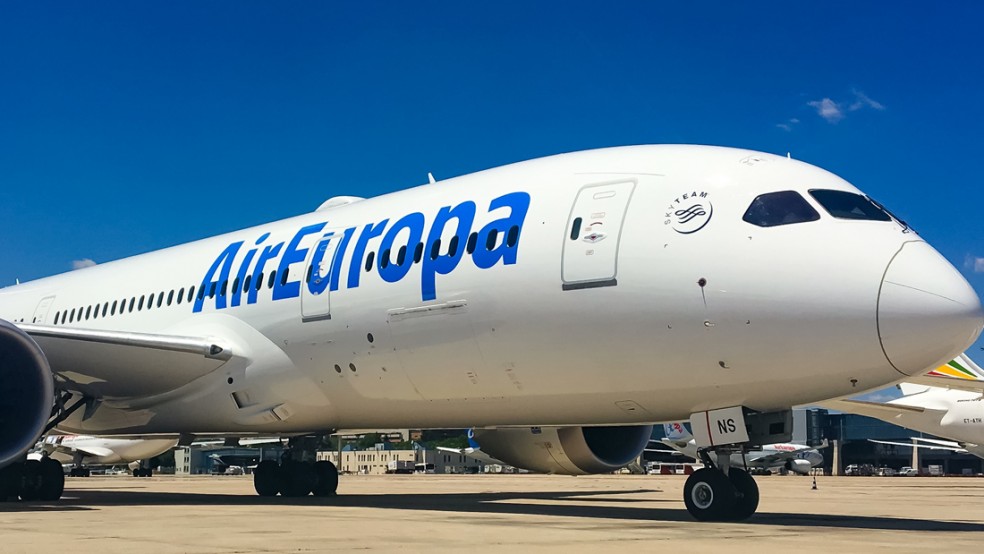Air Europa made its greenest flight last Friday with the aim of continuously adopting environmentally sustainable solutions that accelerate responsible innovation and lead to reducing the impact of aviation on the environment. This initiative is part of the “The Sustainable Flight Challenge” that the SkyTeam alliance has launched to its partner airlines. The aim is for the sector to accelerate innovation and change by minimizing the impact on the environment. This challenge consists of a friendly competition between the alliance companies, which can participate in up to 14 different categories through the application of advanced responsibility solutions with the aim that the most successful ones are constantly adopted whenever possible, to move forward without compromising the environment.
Air Europa’s most sustainable flight was operated on May 6th between Madrid and Gran Canaria with a Boeing 787-9 Dreamliner. The airline acquired biofuel produced from vegetable oil at the Petronor refinery in Bilbao, as one of the outstanding measures to advance in the decarbonization of the sector. The aircraft used, with capacity for 339 passengers, is one of the most efficient models on the market, capable of reducing both emissions and fuel consumption by 20% thanks to its aerodynamics and most innovative technology. In addition, the Boeing 787-9 also reduces its acoustic impact by 60%, which means significantly reducing noise in towns near airports.
The operation of this flight, for which work was carried out on its most efficient route and which had a joint crew, also included a more sustainable ground procedure. Groundforce, an airport handling services company, used its vehicles equipped with the latest technology for all ground operations surrounding the departure and arrival of a flight. For its part, Enaire collaborated in carrying out the procedures of continuous ascent and descent, as well as in the most optimal trajectory for efficient fuel consumption and, therefore, a significant reduction in CO2 emissions.
On board, Air Europa activated many of the sustainable practices that are already common in its operations. One of them was the use of biodegradable materials, as a phase prior to the progressive and total implementation of “zero plastic on board”, as well as the correct segregation of waste, a measure that the airline has applied since 2006 not only in its offices, but also in all its flights. During the operation, a sustainable and healthy menu was offered, made with seasonal and zero-kilometer products, with which the care of the environment is reinforced and the circular economy is enhanced.
The airline, which invited passengers to check-in online, involved passengers by distributing a satisfaction survey on board by using a use and plant paper, with which a small garden will later be created at the company’s headquarters.
It should be remembered that Air Europa, in its commitment to environmentally friendly economic growth, already applies multiple practices that have allowed it to improve the efficiency of its flights and meet the strategic objective of the ICAO (International Civil Aviation Organization) of reducing total greenhouse gas emissions by 2% per year. These include the creation of a fuel consumption and associated emissions data application; the implementation of the Electronic Flight Bag project; the creation of a regular fuel committee or participation in aviation working groups.
In addition to the operation of its greenest flight, Air Europa involved and worked jointly with suppliers and air navigation and airport managers, who showed their total and absolute predisposition to mitigate the consequences of climate change in the field of commercial aviation.
Inspired by the air competitions that linked Melbourne and London in 1934, “The Sustainable Flight Challenge” seeks to unite the entire aviation industry to take immediate action through innovation. The purpose is to reduce the impact of aviation on the environment and disseminate transformative ideas that can be shared with the rest of the participants in the sector. In this way, it aims to contribute to provide solutions to the industry to reduce the carbon footprint and environmental impact.


